Elon Musk Sued For Fraud Over Aborted Plan To Take Tesla Private
The legal troubles for Tesla's Elon Musk just got a lot more serious.
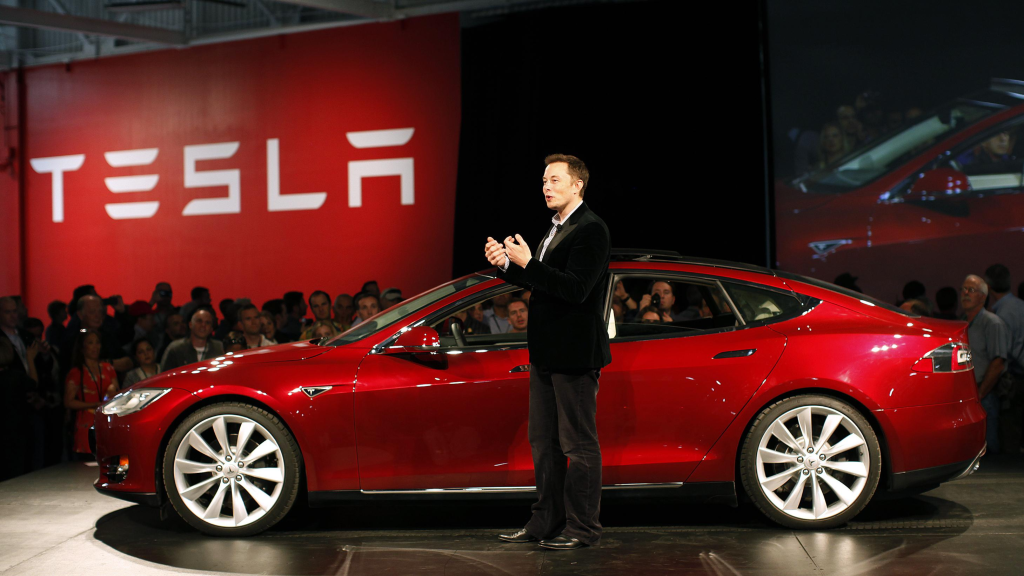
Nearly two months ago, Elon Musk, the billionaire entrepreneur behind the all-electric car company Tesla, SpaceX, and other out of this world innovations, shook the business world with the announcement on Twitter that he was considering taking Tesla, a company that has been publicly traded for the past eight years, private at $420 per share, an amount well above its then-current share price. The result of that announcement was, of course, entirely predictable in that Tesla’s stock soared with cable news and business news networks alike breathlessly wondered exactly what it was that Musk, who is also the brains behind SpaceX and its launch business, had in mind for his innovative car company. Not long after Musk made that announcement, though, he appeared to back away from it, and it quickly became clear that he had not discussed this plan with Tesla’s Board of Directors, that he had not filed any of the required paperwork related to taking the company private with the Securities and Exchange Commission, and, most importantly, that he had done nothing to secure the billions of dollars of financing that would be required to purchase the outstanding shares of Tesla at the vastly inflated price of $420 per share despite the fact that his Tweet said that he had “Funding secured.” Three weeks after his Tweet, Tesla announced that he had canceled his plan to take Tesla private.
Obviously, all of this came to the attention of regulators and, yesterday, the Securities and Exchange Commission filed suit against Musk alleging fraud on his part and seeking his removal as Tesla’s Chief Executive Officer:
Elon Musk, Tesla’s chief executive, was accused by federal regulators on Thursday of misleading investors with false public statements, a move that could force him out of the company’s leadership.
At issue is Mr. Musk’s declaration on Twitter last month that he had “funding secured” to buy out the stock of the electric-car maker. The prospect created a firestorm on social media and in the markets that sent Tesla’s shares soaring.
In a lawsuit filed in federal court in New York, the Securities and Exchange Commission accused Mr. Musk of committing fraud by making false public statements with the potential to hurt investors.
The suit seeks to bar Mr. Musk, who is also Tesla’s chairman, from serving as an executive or director of publicly traded companies like Tesla. Such a punishment is one of the most serious remedies the S.E.C. can impose against a corporate executive.
The case is likely to send shock waves across corporate America and could lead to a re-evaluation of how companies use Twitter to communicate with the investing public.
The S.E.C. said Mr. Musk “knew or was reckless in not knowing” that his statements were false or misleading. “In truth and in fact, Musk had not even discussed, much less confirmed, key deal terms, including price, with any potential funding source,” the S.E.C. said in its lawsuit.
In a statement distributed by Tesla, Mr. Musk said: “This unjustified action by the S.E.C. leaves me deeply saddened and disappointed. I have always taken action in the best interests of truth, transparency and investors. Integrity is the most important value in my life and the facts will show I never compromised this in any way.”
The S.E.C. approached the Tesla chief with an offer to settle the case, according to a person familiar with his thinking, but he refused to negotiate, adamant that he had done nothing wrong. A person briefed on the talks said they fell apart Thursday morning, setting the stage for the S.E.C. to vote on the action.
Tesla itself was not named as a defendant.
A Silicon Valley veteran who joined in founding the company 15 years ago, Mr. Musk is widely regarded by analysts and investors as the creative engine behind Tesla. It has become the most valuable American carmaker, with its stock worth more than $50 billion.
It soon emerged that Tesla’s board members were blindsided by Mr. Musk’s post. Tesla at the time hadn’t hired investment banks or others to help raise the money that would be needed to take the company private. And many Tesla investors — natural places to seek financing — said they hadn’t heard anything from Mr. Musk before his tweet.
The S.E.C. issued a round of subpoenas to Tesla and the financial institutions it eventually hired for advice on a potential conversion into a private company. The agency also interviewed a number of Tesla board members, according to a person with knowledge of the matter.
The complaint said Mr. Musk “knew that he had never discussed a going-private transaction at $420 per share with any potential funding source.”
The S.E.C. said that Mr. Musk had been in a persistent feud with investors who were betting that Tesla shares would fall. The complaint notes that Mr. Musk had discussions in late July with a foreign investment fund that had recently acquired a 5 percent stake in Tesla. In those discussions, Mr. Musk said he was thinking about taking Tesla private, but regulators said nothing formal was agreed on.
The action by the S.E.C. is solely related to events surrounding Mr. Musk’s comments on Twitter. But regulators had been investigating Tesla even before the tweet, and are more broadly examining whether Tesla misled investors about its production goals.
Federal prosecutors in California have also sought information from Tesla, an inquiry that appears to be at an early stage.
Tesla’s directors issued a statement affirming that they are “fully confident in Elon, his integrity and his leadership of the company.”
The action against Mr. Musk, 47, is one of the most significant by the S.E.C. during the Trump administration, which has been criticized for focusing on smaller cases. The agency seldom tries to bar a figure as prominent as Mr. Musk permanently from the securities industry.
This lawsuit is just the latest in a series of setbacks that Musk has faced that have caused many to question whether he is properly representing the interests of Tesla shareholders. Recently, for example, Musk appeared on a somewhat popular Internet video podcast smoking marijuana, a perfectly legal action in California of course but one that caused many otherwise sober investors and analysts to call Musk, who famously seldom sleeps as he runs both Tesla and SpaceX, and his leadership into question. Additionally, Musk made headlines earlier this year when he claimed to be working on a method to help free the members of a Thai soccer team trapped in an underground cave and attacked the leader of the dive group that ultimately saved the children when that plan was rejected, calling him a pedophile both on Twitter and in other forums. That has resulted in the filing of a defamation lawsuit against Musk. This lawsuit doesn’t directly implicate Tesla and SpaceX, but as with the podcast and other examples of Musk’s recent behavior have called his fitness for leadership into doubt. This SEC lawsuit is only likely to add to those woes.
Although securities law is a complicated area of the law, the S.E.C.’s lawsuit is fairly straightforward. Essentially they allege that Musk’s tweet about taking Tesla private at a specific share price, which it contends was tied not to any estimation of the actual value of Tesla shares or the company as a whole, was fraudulent because it was not backed up by any sincere plan to actually follow through with such a plan. In support of this claim, the commission cites the fact that there is no record that Musk had discussed this matter with any member of Tesla’s Board of Directors, with the company’s attorneys or accountants, or with any other officers such as the company’s Chief Financial Officer, who one would naturally expect to be involved in something as complicated as a stock buyback. Finally, the commission notes that, notwithstanding the Tweet that Musk sent there is no evidence that he had secured the funding that would be needed to take Tesla private, or that he had even had preliminary discussions with bankers or other financiers that would be involved in such a maneuver. As a result, the commission is seeking the imposition of fines against Musk as well as a Court Order removing him as Chief Executive Officer of Tesla and forbidding him from being involved in the operation of any publicly traded companies. Since this is a civil lawsuit, the commission is not seeking any criminal penalties, although there is a possibility that Musk could be charged criminally for the same activity that he is currently being sued civilly.
Based solely on the allegations in the Complaint, it seems fairly obvious that the commission has a fairly strong case against Musk. He is the Chief Executive Officer of a publicly-traded company and therefore clearly falls within the purview of the Securities Act and the regulations that the commission has enacted to enforce it. As a result, the things he says publicly are highly influential regardless of whether he says them during the company’s quarterly earnings call or on his personal Twitter account. When he made the representation that he was going to take Tesla private at $420 per share, that caused the share price of the company to skyrocket significantly to its highest level ever, although still an amount that fell short of $420 per share, meaning that even late investors stood to make a significant profit if and when he followed through on his plan. Once it became clear that there was no such plan the stock price fell significantly to the point where it is now nearly $100 per share lower than it was immediately after Musk’s tweet, and lower than it had been averaging throughout the year. (Source) From this, the fraud on Musk’s part seems rather apparent.
CBS Marketwatch reports that legal experts say that the SEC has a strong case:
David Chase, a former attorney with the SEC’s division of enforcement, who now represents white-collar defendants at his own firm, told MarketWatch, “The SEC could move fast because it was a straight-up, simple case. Either he had factual support for the tweet or he didn’t.”
In its complaint, the SEC’s lawyers methodically made a case for why Musk missed every step for a prudent go-private transaction when he made his go-private offer in a tweet on August 7.
“I was as surprised as anyone else when Musk tweeted the go-private proposal, that he chose that medium to communicate material information,” Chase said in an interview with MarketWatch. “But given his position as chairman, CEO and largest shareholder, I also assumed there was some factual basis for it.”
Beginning in January 2017, Musk had three or four in-person meetings with representatives of a Saudi Arabia sovereign investment fund. During these meetings, according to testimony Musk gave the SEC, the lead representative of the fund expressed a verbal desire to make a large investment in Tesla and establish a Tesla production facility in the Middle East.
Between July 31, 2018 when the SEC says Musk met again with representatives of the fund and the morning of Aug. 7 when he tweeted his go-private offer announcement, Musk did not have any further substantive communications with representatives of the fund or discuss a going-private transaction at a share price of $420 with any potential funding source, the SEC said.
He also did not contact any additional potential strategic investors to assess their interest in participating in a going-private transaction or retain any advisors to assist with a going-private transaction until after he made the tweet, according to the SEC.
The SEC says at the July 31 meeting with the fund, Musk did not discuss any dollar amount or specific ownership percentage for the fund’s investment in a going-private transaction, any specific acquisition price premium to be offered to current Tesla shareholders or his own process for board approvals of the transaction. He also did not inquire about the fund’s available liquid capital, whether the fund had any past experience participating in a going-private, and any potential restrictions on foreign ownership of a significant stake in Tesla or regulatory hurdles that would have to be overcome.
Musk, and Tesla, also did not notify Nasdaq, where the shares are listed, prior to publishing his August 7 tweets. Nasdaq rules require that listed companies such as Tesla must notify Nasdaq at least ten minutes prior to publicly releasing material information about corporate events like a proposed going-private action.
What’s perplexing about all of this, and perhaps reflective of Musk’s state of mind is the fact that he was apparently offered what seems like a reasonable settlement by the commission that he ended up rejecting at the last minute:
Tesla and the Securities and Exchange Commission were close to a no-guilt settlement but Elon Musk pulled out at the last minute, sources told CNBC.
Under the deal, Musk and Tesla would have had to pay a nominal fine, and the CEO would not have had to admit any guilt, the sources said. However, the settlement would have barred Musk as chairman for two years and would require Tesla to appoint two new independent directors, CNBC’s David Faber, citing sources.
Musk refused to sign the deal because he felt that by settling he would not be truthful to himself, and he wouldn’t have been able to live with the idea that he agreed to accept a settlement and any blemish associated with that, the sources said.
Musk had opportunity to settle SEC case: Sources 5 Hours Ago | 05:50
Tesla and the Securities and Exchange Commission were close to a no-guilt settlement but Elon Musk pulled out at the last minute, sources told CNBC.Under the deal, Musk and Tesla would have had to pay a nominal fine, and the CEO would not have had to admit any guilt, the sources said. However, the settlement would have barred Musk as chairman for two years and would require Tesla to appoint two new independent directors, CNBC’s David Faber, citing sources.
Musk refused to sign the deal because he felt that by settling he would not be truthful to himself, and he wouldn’t have been able to live with the idea that he agreed to accept a settlement and any blemish associated with that, the sources said.
Tesla did not immediately reply to CNBC’s request for comment about the collapse of the deal at the last minute, which was disclosed to Andrew Ross Sorkin by sources who spoke on condition of anonymity.
Musk said Thursday the SEC’s allegations are “unjustified” and that he acted in the best interests of investors.
“Tesla and the board of directors are fully confident in Elon, his integrity, and his leadership of the company, which has resulted in the most successful U.S. auto company in over a century. Our focus remains on the continued ramp of Model 3 production and delivering for our customers, shareholders and employees,” said Tesla’s board of directors in a statement.
The SEC sued Tesla on Thursday, alleging fraud over Musk’s tweet on Aug. 7 in which he announced he was planning to take the company private and had “secured funding” for the deal. It would have been the largest such transaction of its kind.
Musk later said in a blog post he had been approached by the Saudi Arabian sovereign wealth fund multiple times about investing in Tesla, making him confident he would be able to secure the funds needed to take the company private at his price of $420 per share.
Musk called off his plans to take Tesla private on Aug. 24.
The Wall Street Journal was first to report news of the proposed settlement Musk turned down.
For Tesla, the stakes are high. It is unclear if Musk will step down and what the company would be like without him at the helm. These issues have been a distraction for the company, which has been trying to ramp up production of its first mass market vehicle, the Model 3.
There is about a 25 percent chance Musk remains CEO of Tesla now that the SEC is suing the company, said Gene Munster, a managing partner of venture capital firm Loup Ventures, which invests in technology companies.
The settlement notably would have gone some way in eliminating some the overhang on the stock.
Since Musk so far has chosen to fight this, it could take years to reach an outcome, Bernstein analyst Toni Sacconaghi said in a note Friday.
“In the absence of a settlement, the mere possibility that Musk could be removed as CEO (or entirely from Telsa) is likely to cast an overhang on the stock, and make it extremely difficult for the company to raise capital (either private or public),” Sacconaghi said.
While fighting this lawsuit delays the seemingly inevitable for however long it takes for the lawsuit to be resolved, it seems clear that taking the settlement would have been the smarter option here. The fact that Musk vetoed it may be yet another example of just how erratic his behavior has become. It’s also worth noting that this SEC lawsuit is likely just the beginning of the legal problems for Tesla and Musk. We’re also likely to see private lawsuits filed by investors who were impacted by Musk’s announcement and the sudden drop in share price that the company experienced once he abandoned the plan to take the company private. The lesson here is obvious. When you’re the head of a multinational publicly traded company, be careful what you Tweet.
Update 9/30/2018: Musk and Tesla have settled the SEC lawsuit.
Here’s the lawsuit:
SEC v. Musk by on Scribd

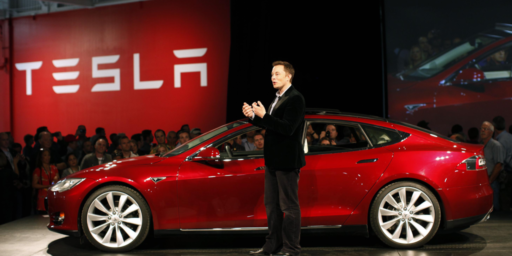
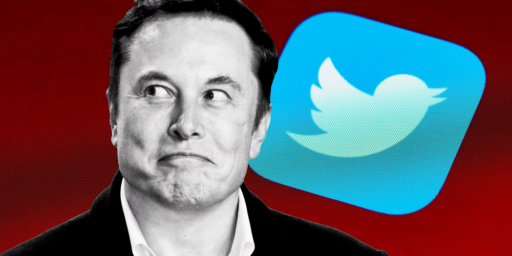
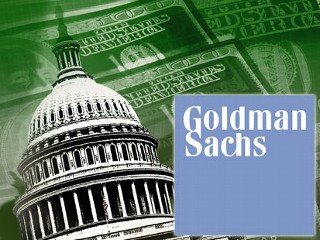
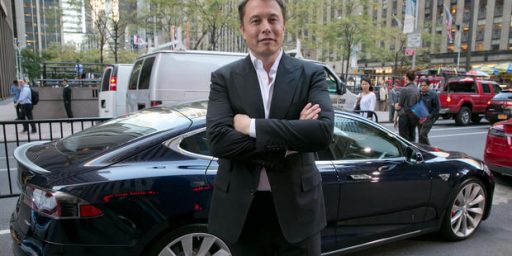
Scuttlebutt among the people I know in the space industry is that Musk has been getting more and more loopy and less and less trusted with his predictions.
@grumpy realist:
Somewhere I saw an article calling him a modern-day Howard Hughes.
OT but it also looks like Sears is finally going down the drain. With a nice fat payoff for its nutty owner, of course.
(Moral of story: libertarians don’t know how to run businesses.)
This whole stonewalling against one’s own interests seems to becoming a theme in America. I would be willing to go with the possibility that he’s losing it due to lack of sleep, but I’m not sure that the “why” is all that important in the big picture.
@grumpy realist: What do you mean–don’t know how to run a business? He’s cashing out big isn’t he? What else matters? The business itself? The employees? The utility of the products and service to the society?
He’s a libertarian; his personal bottom line is the only important consideration here.
While Tesla has the most potential to change the world, I’m far more interested in SpaceX. There Musk has done very good work in lowering the costs of launching satellites into orbit. But even there he’s over promising on what he can do.
Having seen the Falcon 9 perform well, I believe many of his claims of what he will be able to do with the BFR (not really the Big Falcon Rocket, BTW). I don’t believe it will be in the time he claims.
What concerns me, is he’s getting to be erratic in many ways. he takes criticism of his ventures as personal attacks, he’s far too hungry for publicity and notoriety, he tries to butt-in into just about everything he feels like (like the event in Thailand), and he’s getting too aggressive with critics. In short, he’s becoming a competent version of El Cheeto.
That’s too bad. he is in fact competent, and he has several good ideas.
Anyway, IMO, he’ll settle only if he’s allowed to remain in charge of Tesla. He’s like Steve Jobs in that way. It’s his f***ng company.
@grumpy realist:
Sears was dying long before current ownership took it over.
@Kathy:
I actually think the Howard Hughes analogy is the more apt one.
Musk needs to enter NASCAR. That would be interesting.
@Doug Mataconis: Oh, I definitely agree with that; it’s just that this guy just corkscrewed it even earlier into the ground than it could have lasted with his nutty ideas.
@Tyrell:
Why would a guy making technologically advanced cars get involved in that antiquated race series? His street cars outperform those redneck racers.
I think it’s suicide by lawyer. He wants to be forced out rather than crash on his own. If he’s pushed out he’ll always have a little cheering squad. If he just melts down on his own. . .
@Daryl and his brother Darryl:
Funny, I hadn’t thought of Howard Hughes on my own, but it definitely fits.
@Kathy:
i’m not a cave diver, but i am a caver with decades worth of experience in the endeavor and quite conversant with a number of cave divers. i took one look at that cluged up contraption they came up with and just started laughing.
i took part in the attempted rescue of children from a flooded cave (cliff cave, ’93) and can say that his idea has merit, BUT…. it needs a lot of work. And he might want to enlist the help of some actual cavers. you know, like vernon unsworth?
What Elon Musk needs is a vacation, and to get on a regular sleep schedule. He’s burning himself out and going loopy because he doesn’t take care of himself.
@OzarkHillbilly:
There’s a cliche in science fiction that a brilliant scientists makes a crucial discovery one day, invents a weapon or device based on it the next day, and mass produces it the third day, all to save the world/city/galaxy/universe on the fourth day (at the last minute).
That’s what it felt Musk was thinking.
And he should know better. how long did it take to go from an idea to the Falcon 9? A little bit more than four days, I’d guess.
I read the ashley vance book about Musk. He’s an interesting guy. Has the same dumbass libertardian ideas his bros have, but he’s an interesting fellow. In contrast, I read the Isaacson book about Steve Jobs and came away disliking him even more than I already did.
@Daryl and his brother Darryl: It would bring interest to Tesla and NASCAR, which has been losing viewers and sponsors right and left. Last year’s champion Martin Truex’s team is going out.